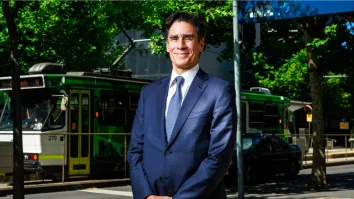
Financial leaders reject ‘Global South’ label over tech boom reality
Financial distress is not an emerging market-only problem.
The term ‘Global South’ is being rejected by a consensus of top financial leaders who argue that it misrepresents the region’s current status as a powerhouse of technological innovation.
Michael Schlein, President and CEO of Accion, highlighted that these markets are not burdened by legacy systems during a panel session at Singapore Fintech Festival 2025. “They are not bogged down by historical infrastructure, so they’re capable of taking advantage of new technologies.”
This view was strongly reinforced by Richard Verma, Chief Administrative Officer at Mastercard. He cited the progress in nations like India, which has surpassed many of those goals laid out for 2030.
Verma stated that developed nations are now wrestling with the same questions of inclusion, making all participants equals when it comes to this discussion of financial inclusion.”
Veerathai Santiprabhob, Former Governor for the Bank of Thailand, shifted the focus entirely to the universal problem of the underserved, noting that financial distress is not an emerging market-only problem.
To illustrate, he pointed out that a Federal Reserve survey showed that only 63% of households in the US have enough saving, enough cash to absorb emergency expenses up to US$400.
Moreover, whilst there is progress in financial access, Schlein noted the unbanked population has dropped from 3 billion to around 1.3 billion since 2011—the final stretch presents a far greater challenge, what the moderator called the “next billion” that is “going to be really tough.”
Schlein broke down this remaining population into specific clusters that require different strategies. He said that two-thirds of those 1.3 billion are smallholder farmers and are harder to reach and serve.
The biggest hurdle for this final group remains informality. Irene Arias Hofman, Founder & Investor, emphasised that financial institutions must find user-centric solutions and take into account how people can change their behaviours.
“The primary lever for inclusion in the near future is Digital Public Infrastructure (DPI), which provides the foundational digital identity, payments, and data exchange systems,” Schlein said.
However, the rollout of DPI faces a fundamental structural challenge that Santiprabhob termed a coordination failure. “Different regulators have different mindsets—this lack of alignment prevents the establishment of a unified, open architecture,” he said.
Hofman argued that success is dependent on this infrastructure. “To unlock access and get to that next billion, you need first to continue to build common infrastructure.” She pointed to successful examples, noting blueprints such as the Brazil and Indian stack.
Furthermore, the goal of DPI is not merely to provide access, but to enable true financial well-being. Santiprabhob cautioned that countries with large banked populations must pay attention to financial well-being, warning, “If you have too much financial access that leads to too much financial fragility, I think that’s not the outcome that we all like to see.”
The discussion also revealed that the most impactful companies are the most financially successful, directly aligning impact and profit in financial inclusion investments.
Schlein said companies must harness the capital markets. To mobilise the necessary funds, Nobuya Kawasaki, Chief Executive for Asia Pacific at MUFG Bank, saw an opportunity in blended finance or securitisation.
“However, many Southeast Asian countries are not fully supporting securitisation in terms of law and regulation, requiring immediate government action,” Kawasaki said.
The panel concluded by agreeing to one single, radical, and urgent concrete action—the responsible rollout of DPI across the globe, supported by a new international governance framework.
Verma called for a global legal and policy framework, stating, “We do not have global rules and norms on all the subjects we talked about. We need them desperately.”
Santiprabhob and Kawasaki supported this by focusing on knowledge and governance structure. Santiprabhob’s action was to strengthen advisory services to make sure that countries know how to operationalise all the key guiding principles, making sure that countries have a proper market structure.
Meanwhile, Kawasaki proposed that the Global Finance and Technology Network (GFTN) provide an open source digital platform—data, legal framework, and the checkpoint—to make sure that the right governance is in place.

















 Advertise
Advertise











